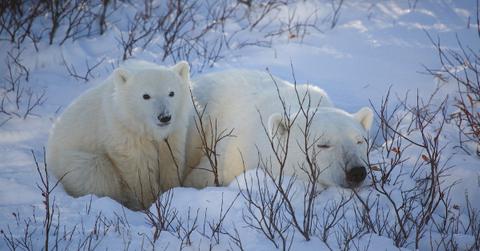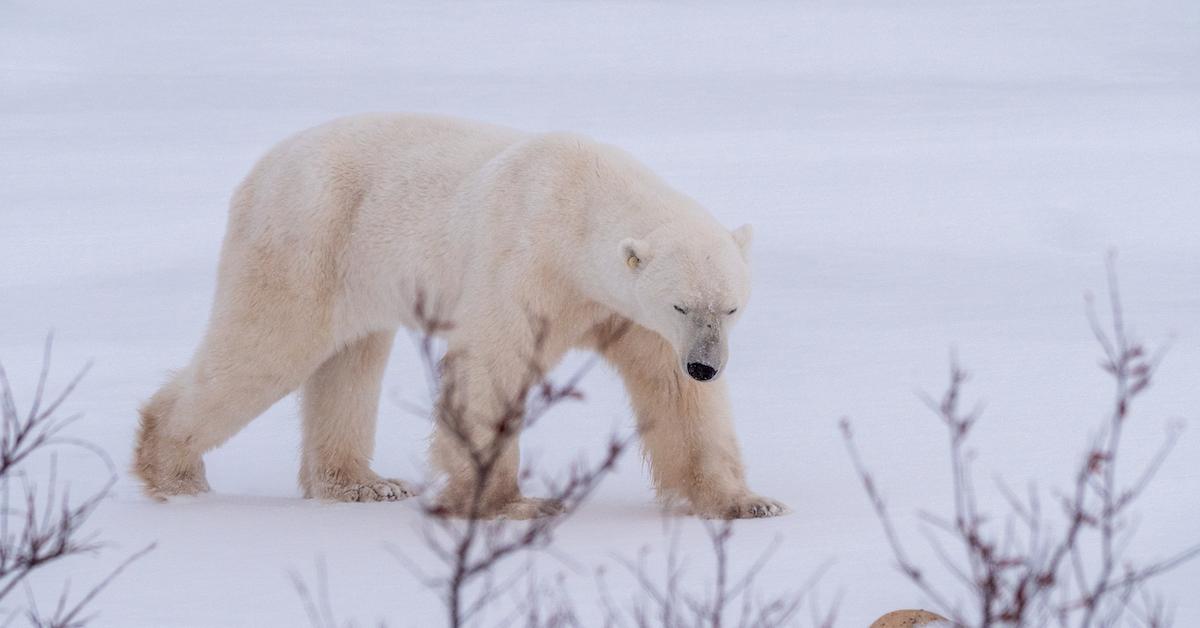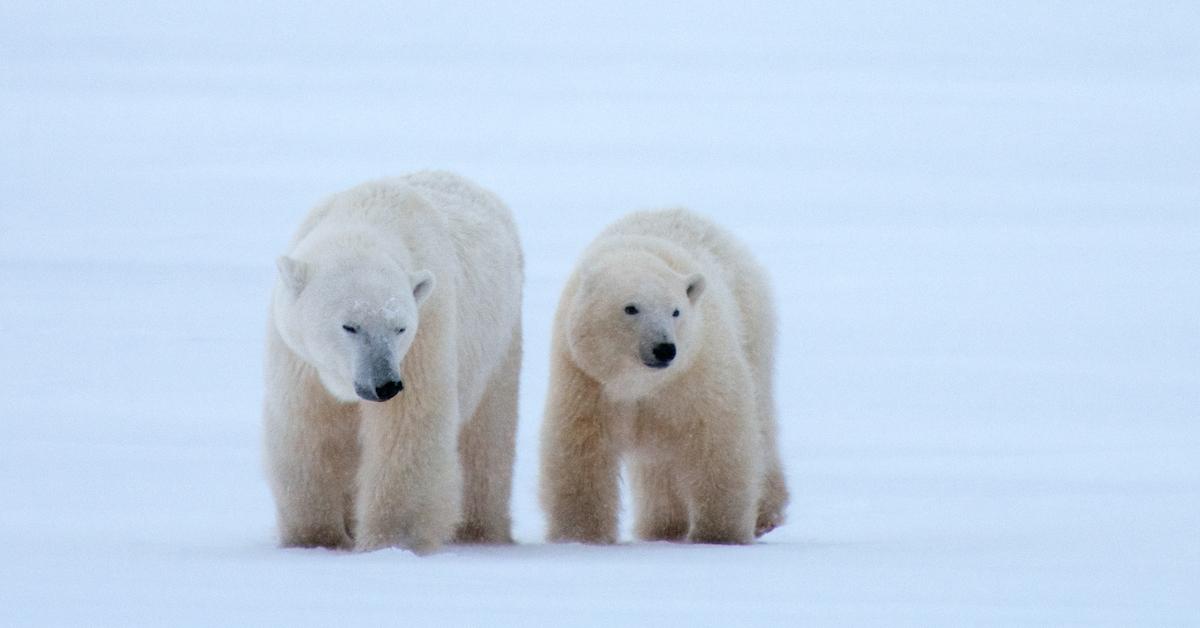Polar Bear Week 2024: How to Help Protect Polar Bears From Climate Change
Here are all the details on the 2024 holiday.
Updated Oct. 25 2024, 11:24 a.m. ET

During the first week of November, people all over the world observe Polar Bear Week. The timing of this annual holiday is not arbitrary — it falls during the annual polar bear migration in the town of Churchill, located in northern Manitoba, Canada, along Hudson Bay.
To commemorate the 2024 holiday, Polar Bears International is highlighting all the research on polar bears that have been published in the past year.
To learn more about these scientific reports, Polar Bear Week 2024, and for a few exciting ways you can celebrate these iconic Arctic creatures, keep reading.

Polar Bear Week is all about protecting these important animals.
Polar Bear Week is presented by Polar Bears International, a conservation organization with a goal of protecting polar bears and their habitats. In alignment with its goal of protecting the Arctic creatures, Polar Bears International is also committed to fighting the climate crisis, which is a large part of the polar bear’s demise in recent decades.
In 2024, Polar Bear Week is observed from Sunday, Oct. 27 through Saturday, Nov. 2.
"Polar bears are a powerful symbol of the changes sweeping across the Arctic and the globe, with northern communities facing these climate-driven shifts firsthand," Krista Wright, Polar Bears International's Executive Director, said in a statement shared with Green Matters.
"As we host this year's Polar Bear Week, we're excited to share the science and beauty of the Arctic with a global audience, aiming to inspire a movement toward more sustainable societies," she added.
Climate change is harming polar bears in endless ways.
In honor of Polar Bear Week 2024, Polar Bears International wants fans to pay attention to some of the important studies on polar bears that have come out this year.
For example, in July, Polar Bears International published a five-year study, unveiling a new satellite method that can be used to track wild polar bears.
An August study based on genetic analysis found that polar bears in Canada’s high Arctic are more vulnerable to the climate crisis than any other group of polar bears in Canada.
Also in August, a researcher shared her discovery of a new subpopulation of polar bears in Greenland, bringing the grand total of global polar bear subpopulations to 20.
In honor of Polar Bear Week 2023, Polar Bears International highlighted the organization's research on polar bear lactation, which was published in October 2023.
For the study, the researchers looked at the connection between the climate crisis and and polar bear mothers' lactation. They found that melting sea ice (caused by rising temperatures) drives polar bears to spend more time on land, and therefore less time hunting and subsequently less time eating; this affects their ability to produce milk as frequently (and to produce "energy-rich" milk) for their babies. This can impact cub growth, and therefore lead to polar bear population decline.

Between rising global temperatures (and therefore melting sea ice) and Arctic drilling, polar bears need our help more than ever — here are a few ways you can get observe Polar Bear Week, plus organizations you can donate to.
Tune into the polar bear live cam.
Polar Bears International runs various livestreams of wild polar bears migrating, available 24/7 throughout Polar Bear Week.
As explained by Polar Bears International, an important part of the migration is the polar bears’ stop in Churchill, where they eagerly await cold enough weather for sea ice to freeze. Once it does, they are able to get out onto the water and hunt for seals, after not having eaten for a while.
Tune into a Tundra Connections chat to learn more about polar bears.
In honor of Polar Bear Week, Polar Bears International is hosting a slew of live talks online, as part of the Tundra Connections series.
On Tuesday, October 29 at 1:00 p.m. CT, students in grades 3 through 12 can tune into “Bear-dar,” Bangers, and Bins, Oh My - STEAM Tools for Living with Polar Bears."
On Monday, Nov. 4 at 2:00 p.m. CT, people of all ages can stream "Celebrating Moms and Cubs" for a discussion about protecting polar bear families.
And on Wednesday, Nov. 13 at 1:00 p.m. CT, students in grades 8 through 12 can stream "Chats for Change – How Conversations Can Support Conservation."
Find details on all Tundra Connections series events here.
Donate to protect polar bears and their habitats.
Polar Bears International has a 100 percent rating on Charity Navigator, as of October 2024.
The charity uses donations to help protect polar bears, the sea ice that is integral to their survival, and preserve the climate that has allowed humans to flourish. You can also symbolically adopt a polar bear from Polar Bears International — in exchange for your donation, you’ll receive an adoption kit with some bear-y cute swag.
Polar Bears International is also encouraging polar bear fans to start a fundraiser as part of the Protect Polar Bears and People fundraising challenge.
Additionally, international environmental charity Greenpeace uses donations to help a variety of causes, and the Australian division of Greenpeace’s website has a specific donation page to help polar bears.
This article, originally published on Oct. 28, 2021, has been updated.